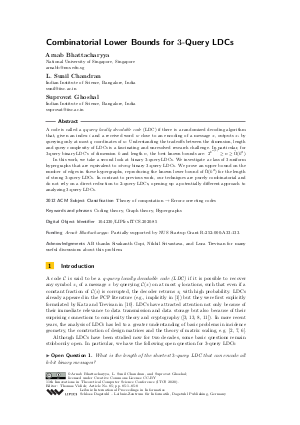LIPIcs.ITCS.2020.85.pdf
- Filesize: 478 kB
- 8 pages

 Creative Commons Attribution 3.0 Unported license
Creative Commons Attribution 3.0 Unported license
















Feedback for Dagstuhl Publishing